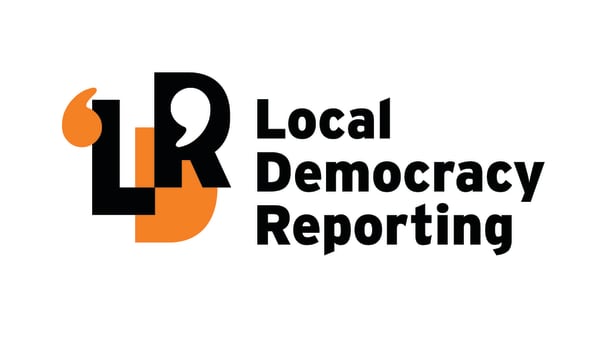Gisborne is to test out a new community-led approach to decision-making throughout November.

Invitations are being randomly sent out this week to 2500 residents to take part in a Citizens’ Assembly.
Of those who indicate their interest, 35-40 Tairāwhiti residents will be selected through a civic lottery system to reflect the community’s diverse demographics.
The group will then be tasked with answering: “What is a fair way to manage the proposed land use changes in Tairāwhiti?”
Supported by Gisborne District Council, Te Weu Charitable Trust is working with Auckland University’s Koi Tū: The Centre for Informed Futures to run the event.
It will take place over three day-long sessions and two online sessions.
The group will be provided with information from experts and stakeholders, delving into the major land use challenges and opportunities in the region.
Possible topics include climate projections and risk assessments, adaptation planning, Māori land and land-based industries, forest ecology — exotic natives, the economics of transitioning land, and policy and legal matters.
The project has been given $400,000, which the council received from the Government’s Better Off Funding in 2022.
It was delayed in the wake of Cyclone Gabrielle in February 2023.
Te Weu project lead Harley Dibble said it was ironic and serendipitous that the council saw the need for an initiative like this before the cyclone.
Phase one of the project was completed earlier this year, with local researchers visiting communities to see how they were recovering from the cyclone and how they would adapt.
Dibble said citizens’ assemblies were growing in popularity around the world in dealing with the biggest challenges faced by their communities. ”[The] sustainable management of forestry and farming activities is a critical issue for our region, with too much sediment and woody debris ending up in our waterways and damaging infrastructure.
“Climate change has the potential to make this issue worse,” he said.
The council had two land use plan change processes under way to address this issue.
One of these plans included turning the region’s worst eroding land into permanent vegetation cover.
The Citizens’ Assembly participants will explore the costs and benefits of the land use transition and make recommendations on managing those changes.
“The citizen assembly process sits outside the formal plan change processes, but Council has committed to recognising and making provision for the recommendations that the Citizens’ Assembly arrives at,” he said.
The Government has indicated potential changes to the National Environmental Standards for Commercial Forestry (NES-CF), which could scrap the council’s ability to control land use adaptation from a regional level.
Dibble told Local Democracy Reporting that the assembly would be updated on these changes if they went through.
Koi Tu deputy director Dr Anne Bardsley said her experience of these forums showed the public could help with complex problem-solving and be open-minded when considering trade-offs.
Participants will be given a $900 Prezzy Card for their mahi if they attend all required sessions.
Council director for sustainable futures Joanna Noble said citizens’ assemblies provided an alternative method of community engagement for council decision-making.











6 comments
“citizens’ assemblies provided an alternative method of community engagement for council decision-making".
The RMA reforms are not decisions to be made by councils, nor land-use changes on private farmlands.
It seems this is yet another disingenuous way for our district council to act in subversive ways to push its ideological goals, bypassing both upcoming central Govt RMA reforms and local democracy.
The whole project - from the appointment of Te Weu to lead this process, to lottery selection of a ‘citizens’ assembly’, to the very dubious goal of this process and calling it deliberative democracy - is laughable, except that it is a $400,000 joke and the joke is on us!
I have already explained in detail in my recent column and the comments underneath -
‘Better Off’ funds from 2022 used for new climate project post-Gabrielle
https://www.gisborneherald.co.nz/column/better-off-funds-from-2022-used-for-new-climate-project-post-gabrielle
- that using taxpayers' funds given in Aug 2022 for the specific aim of “to help communities understand and plan for the future impacts of climate change” to Te Weu in Sep 2024 with no consultation with the public is fraught with problems and in contradiction with the original aim and condition of this grant.
Undemocratic use of $400,000 of taxpayers’ money in an ideological pursuit, the end outcome of which is already pre-scripted by GDC and Te Weu, is a mockery of democracy.
This whole thing is a sham and truly disgraceful conduct by GDC. It is best for this $400,000 to go to local catchment groups, as their actions are more in line with the original aim of this government grant.
Perhaps the council should organise a deliberative democracy session for the disastrous Grey St changes. I am sure people will be very happy to take part without a $900 prezzy card incentive!
Or how about deliberative democracy on GDC’s out-of-control debt or rate increases that are causing hardship for our people? Perhaps a deliberative democracy process to see how we can reduce the size of GDC by half by getting rid of all the Woke projects and departments - and focusing only on the basics.
JOIN THE CONVERSATION
Read and post comments with a
Newsroom Pro subscription.
Subscribe now to start a free
28-day trial.